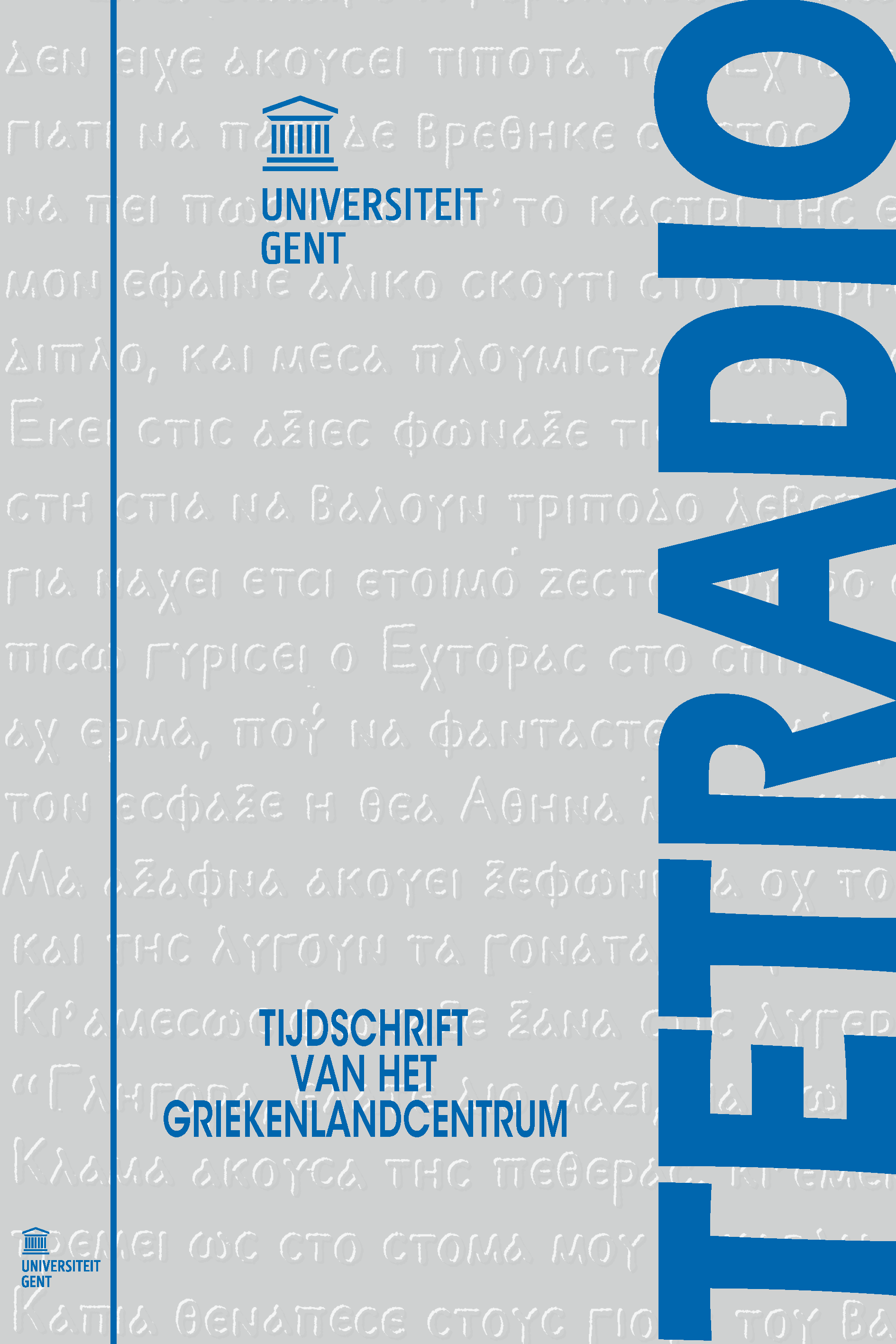Democratische elementen in de teksten van Dio van Prusa
Abstract
For a long time the orthodox scholarly view on ancient Greek democracy had been that it more or less disappeared when the Greek city-states were defeated by the Macedonians in the battle of Chaeronea in 338 B.C., never to revive again under the Hellenistic kingdoms and the Roman Empire. Over the last decade part of this view has been successfully challenged. Today, the new consensus is that democracies continued to exist well into the Hellenistic period. The death of democracy and popular ideology is now often linked to the advent of the Romans. A few dissident voices have recently foregrounded reasons to doubt this view at least to some extent. In this article I will analyse the rhetorical discourse of several orations of Dio Chrysostom (Or. 7, 32, 34 and 46) from the perspective of the so-called ‘discourse paradigm’. By focusing on Dio’s description of ‘the people’ and his communication with ‘the people’ I intend to establish that popular ideology continued to influence civic politics in the 2nd century A.D.
How to Cite:
Oppeneer, T., (2012) “Democratische elementen in de teksten van Dio van Prusa”, Tetradio 21(1): 7, 133–155. doi: https://doi.org/10.21825/tetradio.91821
Downloads:
Download PDF
View PDF

